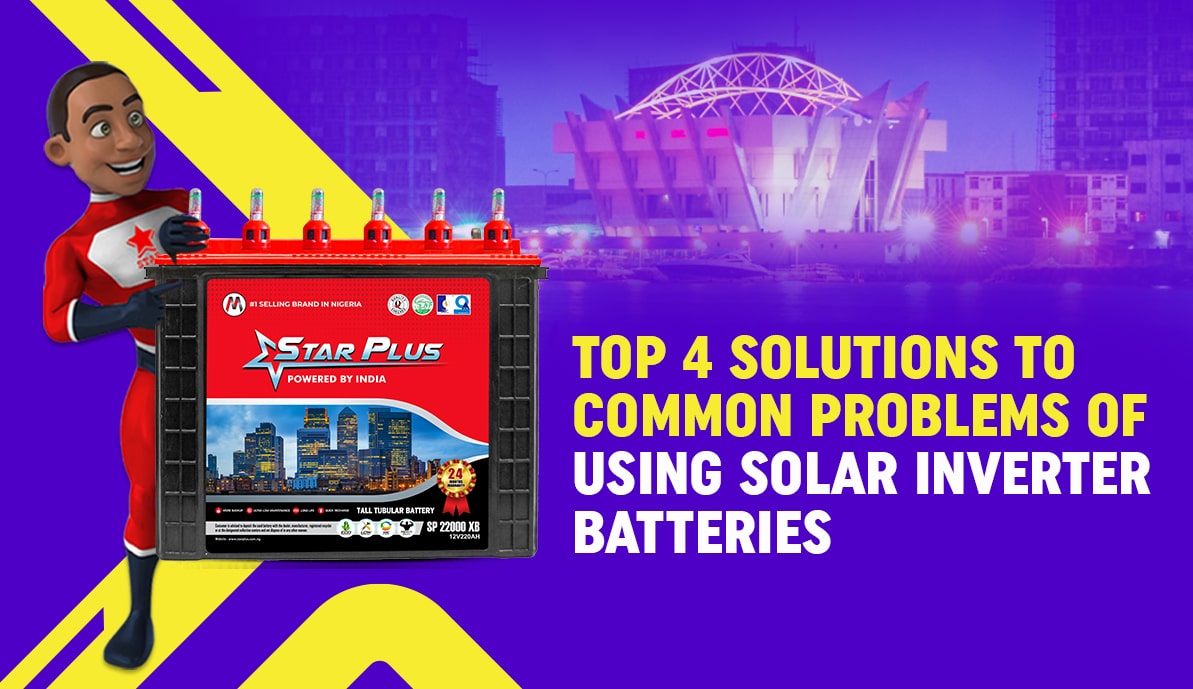Solar Batteries are critical components of any solar power system. High-powered solar batteries offer excellent performance and assist customers to maximise their investment. However, the lack of proper installation and maintenance leads to specific challenges. Customers unaware of solar power management often avoid complexities, which results in limited usage.
Worry not; we can help you navigate through everyday challenges. In this blog, we’ll discuss the significant risks of using solar power batteries and easy solutions to look for.
Before you again decide to avoid solar power usage, check out this blog for a detailed understanding.
Key Problems associated with Solar Inverter Batteries
1. Faulty Installation of Inverters
One of the primary reasons for solar battery damage is the faulty installation of inverters. It can range from misconnecting solar batteries from inverters to incorrect programming. In some cases, inverter solar batteries either stop functioning midway or result in overheating or underheating.
2. Overheating
Overheating is a common challenge faced by solar inverter batteries. Conditions like poor ventilation and placement in high ambient temperatures can cause overheating. High temperatures can significantly impact an inverter’s performance. Capacitors of solar inverter batteries are sensitive to heat and loss and have the ability to store energy for a prolonged period.
3. Undercharging
When the solar battery receives too little energy, it undercharges and results in poor solar performance. Undercharged batteries result in shorter lifespans, voltage drops and energy shortages. This, in return, will ultimately affect your power supply and system efficiency.
4. Poor Maintenance Practices
Improper management of solar panels can result in damage to your solar inverter batteries. Neglecting regular maintenance of panels, inverters, and batteries results in complexities. If your battery and inverter are stored in damp or dusty places, rust deposition might occur. As a result, performance ability automatically is hampered in the process.
5. Voltage Imbalance
Frequent power outages in Nigeria are a common factor that has been hampering the nation’s household, commercial and industrial operations over the decades. Voltage imbalance can occur as a result and impose high pressure upon the functioning ability of both inverters and the batteries. This is when either overcharging or undercharging of inverter batteries occurs.
As you evaluate the common challenges associated with solar inverter batteries, it s time to learn about the quick solutions. Here’s what you need to know about.
Want to Buy Tubular Inverter Battery for Your Home and Office?
Solutions to Common Solar Inverter Battery Problems
1. Check Charge Levels
Secondly, you need to check the existing charge levels of your solar inverter battery. Monitor the State of Charge (SOC) and try to keep the charge levels between 40% to 80%. Once the charge levels of your inverter battery are maintained, the charging and discharging levels will automatically be regulated.
Check the charge levels weekly once to prevent drastic drops. However, charging efficiency also depends on solar battery types. As a result, noting the particular solar battery type will be necessary.
Maintain proper logs of your battery’s charge levels to predict any early issues of battery damage. This will also enable your solar inverter battery charger to stay stable without getting overheated.
2. Clean Your Solar Batteries Regularly
Solar batteries, like ordinary inverter batteries, need to be cleaned at regular intervals. The Nigerian climate varies, and sometimes, adverse climatic conditions cause inverter batteries to wear out. Check out for rust, dirt and dust deposition across your battery terminals and surfaces so that risks of sudden malfunction are treated correctly. Moreover, you should clean your solar panels, inverters, and systems frequently to detect any possibility of battery damage at an early stage.
3. Ensure Proper Ventilation
Proper ventilation is necessary across inverter battery storage spaces. The space need not possess a thermostat, but basic ventilated facilities can be adequate. Make sure the batteries are stored in a damp space or a place subjected to extreme heat or cold exposure.
Similarly, avoid storing your solar batteries inside refrigerators and never in an area with prominent water leaks. Proper ventilation will help air flow regulate the natural room temperature and prevent the battery from getting overheated.
4. Check Connections to Secure
Connections of your inverter batteries need to be secured to avoid short circuits. Overloading or undercharging can cause severe damage to the internal structure of your inverter battery. As a result, the lifespan of your inverter solar battery might gradually reduce, irrespective of having a robust construction.
Wrapping Up
Solar inverter batteries ensure sustainability and resource efficiency for Nigerian households. We at Star Plus Battery can offer you the best solar power solutions. So that, you can smoothly transition towards cost-efficient energy consumption and offer innovative opportunities in the future.



0 Comments